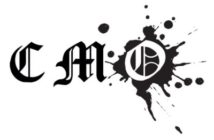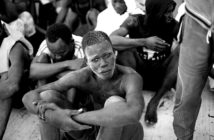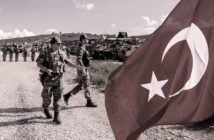On the 21st of August 2013, a gas attack occured in al-Ghouta, the Eastern suburbs of Damacus, a territory controlled by the Syrian rebellion. Immediately, most of the International Western Community accused the regime of Syrian President Bashar al-Assad of being responsible for this attack and the use of chemical weapons. The attack provoked the death of more than one thousand people, not only fighting rebels, but mainly civilians, amongst wich women and children. On the 20th of August 2012, just one year and one day before this gas attack, US President Obama declared that the use of chemical weapons by the Syrian government against its own people would trigger a US intervention in Syria. Some doubts exist about the authors of this gas attack. The well known investigative journalist Seymour Hersh, Pulitzer Prize for his famous reportages during the Vietnam War, accepted to expand on his inquiry for us…
The Maghreb and Orient Courier – Thank you very much for accepting this interview. My first question will be to ask you to tell us what about your personal interest in Syria, in particular about the Syrian revolution.
Seymour HERSH – I have spent much time in Syria since 9/11 and learned within a few months of the attacks that the Syrian intelligence service, at the direction of Bashar al-Assad, was sharing much valuable information about the Muslim Brotherhood with our CIA… Literally hundreds, if not more, of files.
We knew very little about what had been going on in Hamburg, where Mohamad Atta, one of the organizers of the attacks, had his base of operations… And the Syrian files were eye-openers. I saw Bashar al-Assad on my first meeting then, and he was very clear in his statements that he was sympathetic to America in the wake of 9/11, and very much wanted to begin a serious relationship with the US.
That did not happen, nor did the Syrian government get any credit from the Bush/Cheney administration for its early help. It seemed to me at the time to be very bad policy. I also thought Bashar al-Assad was more sophisticated and intelligent than he was perceived to be by the Western media…
I must add that in my later visits with him I always raised the human rights issue… Conditions were better, in terms of access to the Internet and foreign news reporting, but Syrian dissidents still have the prospect of being jailed for speaking out publicly against the leadership. And the president would agree that he needed to make improvements in that area ; but said his highest priority was to eliminate corruption.
MOC – What exactly did you find out the gas attack on the rebels’ positions in Damascus’s suburbs (al-Ghouta) ? Do you affrim that the Syrian government is not responsible for this attack ?
S. HERSH – I do not think I can add to what I have written about my knowledge and also have made it clear in the two articles I wrote for the London Review of Books that I’m not claiming to know who did what inside al-Ghouta.
What I do know is that the Sarin that was recovered after the August 21 attack, as well as the materials recovered from at least one site after the March/April chemical attacks did not match the materials that is known by Western intelligence to be in the Syrian arsenal. Therefore, as I have written, it seemed evident that my President, Barack Obama, was willing to authorize a massive bombing attack on Syrian military positions on the basis of faulty and incomplete evidence .
That was seen by many inside the US government to be a war crime or, at the least, to be an unjust military escalation.
MOC – So, can you confirm that rebels organized the attack ?
S. HERSH – As I said below, I can only say that the American case for accusing Syria of carrying out the chemical attack on August 21 was far weaker than known, and far short of the kind of categorical information needed to justify an American air strike.
MOC – Could you tell us a little more about your inquiry, your sources and the manner in wich you succeeded to obtain this information ?
S. HERSH – Of course I could tell you more about whom I talked to, but I would be out of business if I did so… Clearly, I have access to men and women on the inside who know what is going on… Must leave at that…
As I said in my London Review story, I also have obtained a very sensitive highly classified American intelligence document that is focused on the ability of the al-Nusra Front, with the help of some elements in Turkey, to obtain the materials needed to produce Sarin, and the technical skill to do so.
MOC – Which rebel group in particular was involved in the events of al-Ghouta ? Al-Nusra ?
S. HERSH – The intelligence I have written about and heard of strongly suggests that al-Nusra has the knowledge and means to carry out such an attack, but as I have said above, I do not know whether al-Nusra – or any other known rebel group – was involved. It is just not known to Western intelligence, as far as I can tell.
MOC – What role did the Turkish government play in this matter ?
S. HERSH – I have no reason to believe that any Turkish intelligence or military official was in al-Ghouta at the time of attack, but there are some in the US intelligence community who have concluded that the Turkish government was eager for an chemical warfare attack to be carried out…One that could be blamed on the Syrian government… To force President Obama to carry out his threat of retaliation if his « red line » was crossed.
MOC – And what was the goal of the Turkish government ?
S. HERSH – The war was going very badly for the Ergodan government, and the Prime Minister had staked so much on a victory over Bashar.
He was facing, with the seemingly inevitable defeat of the rebels in Syria, the prospect of an Assad government in Damascus that would be hostile, a hostile Russian government, and the possibility of being forced to deal with and take care of thousands of jihadists who would most likely flee into his country at the inevitable end of the war – many of them enraged at Ergodan for not providing more support.
Not a pretty picture.
MOC – Was this place (al-Ghouta) a strategic position ? Would this justify the use of chemical weapons by the governement army ? Especially considering the risk of an international intervention against the Baas regime…
S. HERSH – We all know al-Ghouta was a major rebel controlled area near Damascus… One that also contained fertile fields and farms that were a source of much food stuff for the city.
There also had been a renewed attempt in early August of last year by the rebels to storm the city through the Jobar Gate in the south, which was only a few miles from the old city. The Syrian army had beaten back the offensive, pretty much, by August 21 and was escalating its mortar and artillery attacks against al-Ghouta.
No need to use Sarin ! Which is an enormously unpredictable weapon – wind direction can change any time – and also it seemed to me (and many others) that Bashar would have to be suicidal to order such an attack at a time when the UN inspectors had just arrived in Damascus to continue their inquiry into the March/April chemical incidents.
MOC – What is your reaction when the conclusions of the investigations of such a brilliant and well known journalist as you are (Pulitzer Prize, amongst other journalism awards and recognitions) are refused by the majority of the medias, like The Washington Post or The New Yorker, and when the all main media sphere keep what you found silent ?
S. HERSH – The mainstream press in America has been ignoring my stories about the American war on terror, with a few exceptions since 9/11…
I’ve learned not to worry about what I cannot control, though it does make me very sad ; especially because I worked for many wonderful years at The New York Times, and won many, many prizes reporting on national security issues for the paper.
Clearly, some of the editors and reporters at The Times who understand that I have sources on the inside must wonder what in hell is going on, but maybe not.
I hear nothing from them…
MOC – Do we have a global problem within today’s world of « information » ?
S. HERSH – I’ll say we have a global problem. Thank God for the internet, and all of the new news services proliferating around the world – like yours, I gather.
My stories in the London Review of Books get spread all over the world because of the Internet –a most marvellous new printing press !
MOC – Why President Obama finally not decided to intervene in Syria, although the Syrian government had crossed the « red line », which the US President fixed about the use of chemical weapons ?
S. HERSH – The senior generals in the American military came to him saying that the evidence about the Sarin does not prove what he was saying in public, and they also found the bombing attack he authorized to be totally out or proportion.
It took courage and integrity for them to say so.
MOC – What’s your analysis about the perspectives for the Syrian conflict ?
S. HERSH – Bashar al-Assad is winning the war but if Obama decides to escalate his support for the rebels – who are largely led by militias whose values are similar to those who did the 9/11 attack – the slaughter and killing could drag for another year or so.
What will Obama do ? Not clear… And that is a little frightening.
Does he really think Israel would stay quiet if a Salifist or Wahibi regime took power in Syria ?
Still a dangerous time.
Interviewed by Pierre PICCININ da PRATA






2 Comments
Ce qu’il ressort de cette interview avec Seymour HERSH ce sont des probabilités et des potentialités. Aucune donnée concrète, vérifiée, l’interviewé se contentant de généralités floues, ne pouvant trop parler pour ne pas se compromettre (paraît-il). Aucune argumentation scientifique pour contredire les rapports des experts de l’ONU et de la DGSE. Si l’Occident était vraiment convaincu que le Front Al-Nosra (et/ou autres formations extrémistes) était responsable de l’attaque de la Ghouta, il s’activerait à vouloir confisquer les armes chimiques de cette formation plutôt que celles du régime. Or, non seulement l’Occident a-t-il uniquement exercé ses pressions sur les autorités officielles, mais celles-ci se sont empressées de livrer tout leur arsenal sans rouspéter, comme pour admettre leur culpabilité. Si les Américains, et derrière eux les Israéliens, avaient le moindre soupçon de l’implication de jihadistes dans l’attaque chimique, pensez-vous qu’ils resteraient cois ? Adopter cette théorie farfelue équivaudrait aussi à dire que les jihadistes auront obtenu le désarmement du régime, en matière d’armes chimiques, pour conserver les leurs !
Seymour Hersch is a mindboggling irresponsible former reporter who has tossed away any sort of journalistic checks, or scientific following of evidence, who deserves nothing but to be ignored.
His last statement of a conflict between Generals and Obama is utterly FALSE and fabricated. The conflict was due to the Generals (!!) worried about guaranteeing zero U.S. casualties, not about the damning evidence the Syrian military did it.
Some of the details not bothered with in this short interview, with Hersh publishing that paper in that U.K. rag: Hersch’s one unnamed source versus much physical evidence of the gas attack rocket launch locations – the U.N. played politics by drawing those launch zone circle, they know exactly which Army bases fired them off.
Of course the USA must keep conversations classified, releasing the captured telephone calls would “blow the taps” our great wonderful NSA or Pentagon use to monitor the genocidal monstrous Assad regime.
Does Assad have undeclared troves of chemical weapons? Those taps may help us know.
Previously Hersh cynically took advantage of the US military’s refusal to fly Osama bin Laden’s bullet ridden corpse to him personally to examine, photograph without restriction and only then with Hersh’s permission fly back out to sea for burial.